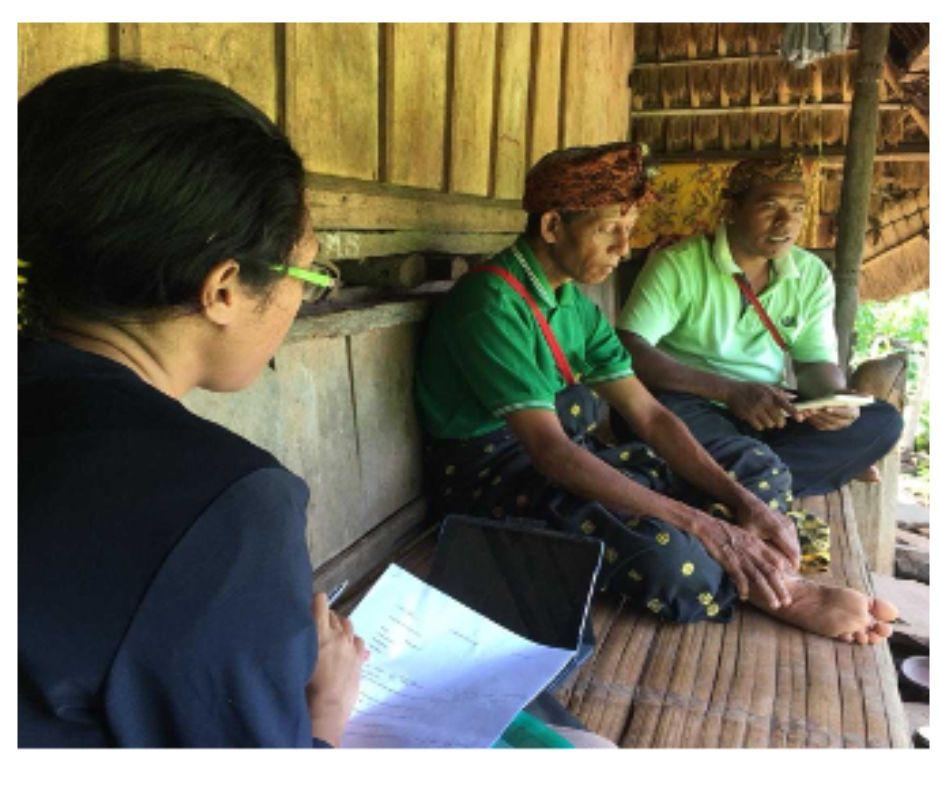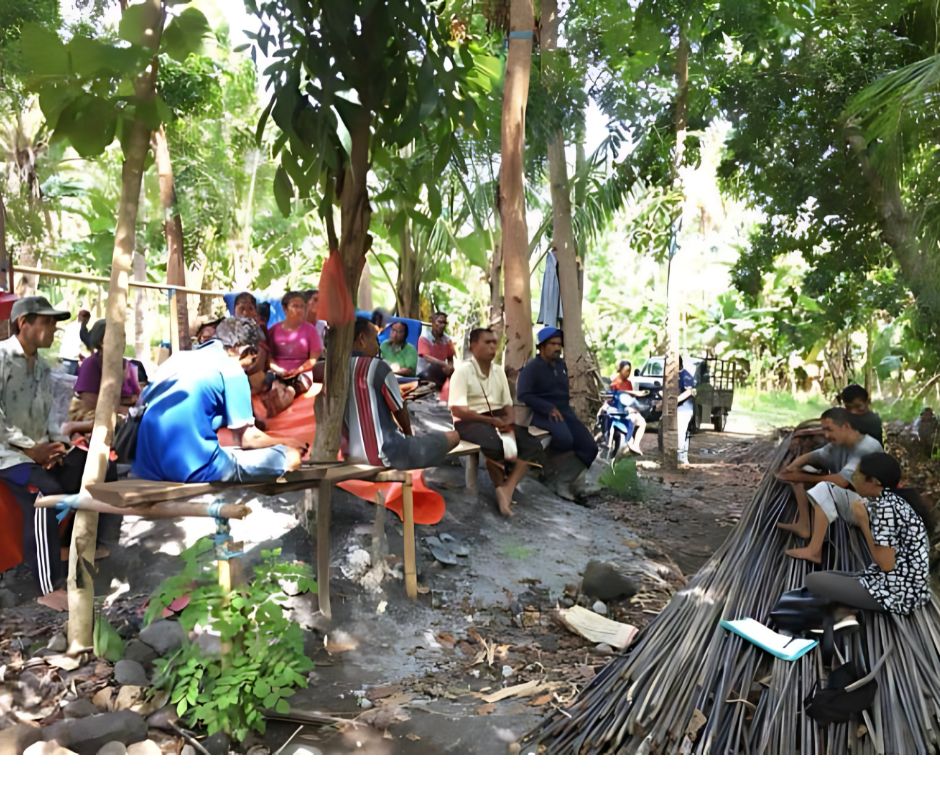
“Our stories and rituals were not just about the past—they are reminders of how we must protect the Earth today.”
The goal of the project is to develop a resource based on traditional wisdom related to people and environment which can inform environmental actions including improving physical environment in Nagekeo regency by reducing litter.
Main Objectives:
- Identify traditional relationships between land and people,
- create commitment to eliminate litter in public spaces,
- Provide local resource material for the activists and policy & decision makers.
The "Story of the Land" project, led by Rosa under WISE – WASH in Southeast Asia, aimed to document traditional wisdom on environmental conservation in Nagekeo Regency, Indonesia, and use this knowledge to influence community behavior and policy-making on litter reduction and environmental protection. The project gathered stories from tribal leaders and village communities, highlighting cultural values, rituals, and beliefs that reinforce the relationship between people and their land. The research revealed that while rituals and ceremonies still preserve some environmental knowledge, awareness among younger generations is declining. Challenges in archiving local wisdom arose, as some oral traditions require ceremonial settings for legitimacy, delaying the documentation process.
Despite setbacks due to COVID-19 restrictions and limitations in volunteer participation, the project successfully engaged 10 village leaders and tribal elders in discussions about land stewardship, waste management, and climate change. It also involved local youth in learning sessions where they interacted with elders to understand traditional ecological principles such as "Ine Tana, Ame Watu" (Mother is Land, Father is Stone)—a cultural concept emphasizing the need to protect land as one would care for their parents. The project further identified climate-related changes affecting traditional agricultural cycles and water resources, reinforcing the urgency of integrating local wisdom into modern environmental policies.

One of the key outcomes was the recognition of the need for a structured archive where communities could preserve their oral histories and ecological knowledge. The project also raised awareness of waste management issues, encouraging youth organizations to initiate local cleanup activities. Although the original plan of publishing findings online was delayed due to the complexity of cultural approvals, the project laid the groundwork for future policy engagement and education programs. WISE aims to continue its efforts by deepening its collaboration with local tribes, further documenting traditional ecological practices, and ensuring this knowledge is passed on to future generations.

